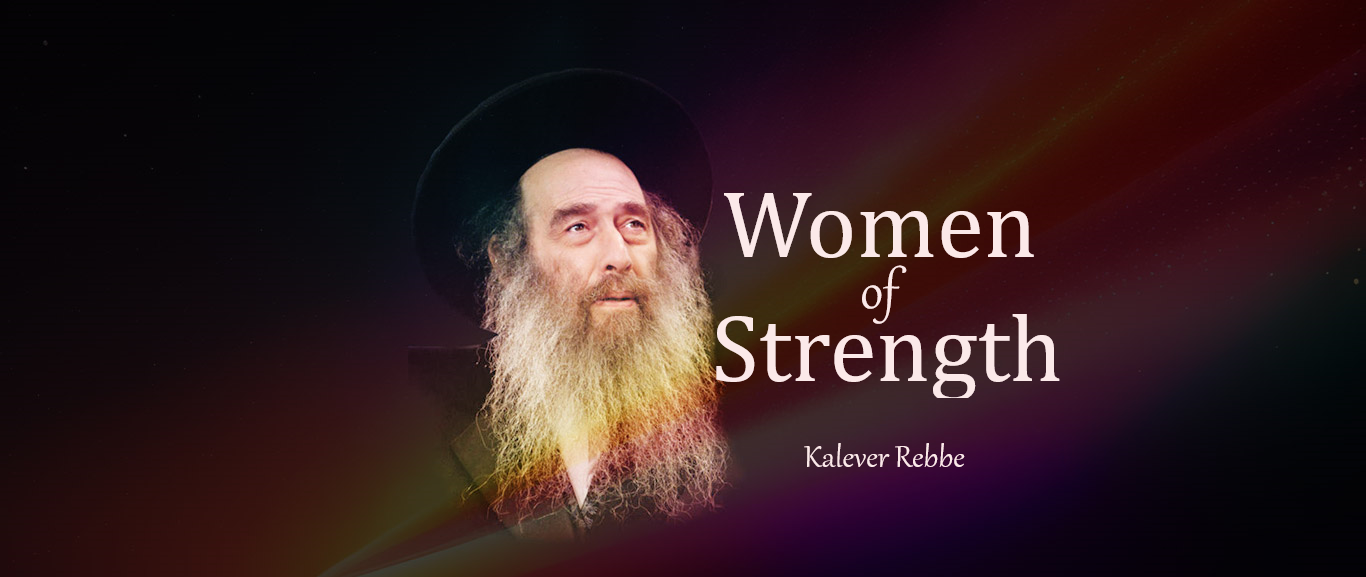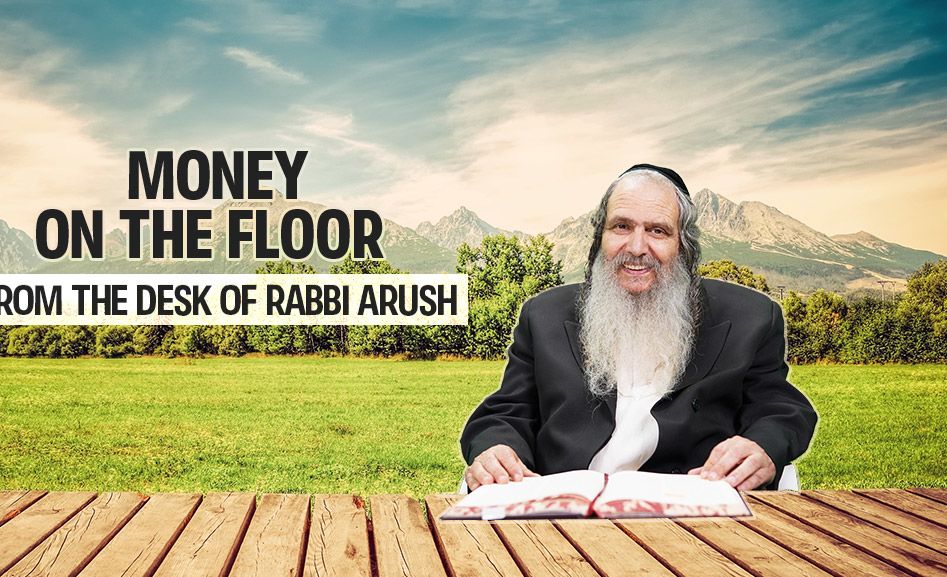
Women of Strength
Is stubbornness a good trait or not? It depends... The Kalever Rebbe describes how the stubbornness of Jewish women in Egypt brought about their redemption. May it be so for us as well!

“You will not take a wife for my son from the daughters of the Canaanites.” (Bereishit 24:3)
Be Stubborn for Hashem
A Jew was considering a young man as a marital match for his daughter. It was rumored that the potential groom was a stubborn person. Unsure of what to do, the father went to seek guidance from R’ Shlomo from Zvhill.
After describing the situation, the Rebbe replied: “Stubbornness can be an admirable virtue. A God-fearing person needs to be stubborn and tenacious for kedusha, holy matters. Stubbornness is only a flaw if it drives a person to chase pursuits that are worth giving up. If that is the case, it is a very negative trait indeed.”
Women in particular need to utilize the attribute of stubbornness and tenacity. They are the foundation of building Jewish homes and families. This trait drives the performance and adherence to the mitzvot.
The very first clause of the Tur Shulchan Aruch teaches: In Pirkei Avot (Chapter 5, Mishnah 20) it says: “Be bold as a tiger”… a Jew needs to be bold like a tiger in their Avodat Hashem (service of Hashem) and not be afraid or worried about being embarrassed by other people.
Jews cannot be embarrassed to serve Hashem. They need to be bold and proud.
Cannot Give in to Peer Pressure
Today, women in particular face this challenge, especially when it comes to clothing and styles. There is peer pressure and a desire to follow these fashionable trends that seem “modest” even though they would be forbidden by the laws of tzniut (modesty) and the guidance of rabbanim.
The entire fashion industry is illogical. Every year new styles are designed and promoted. People then become willing to spend a significant sum of money on these clothes. And they throw away their equally expensive clothes from the previous year. Women wear these clothes even if they are uncomfortable.
These clothes are also designed to attract the attention of others. We have seen too many families ruined by promiscuous and frivolous behavior.
Peer pressure creates a herd mentality. Animals blindly follow the animal that is in front of them without knowing where it is going. You see animals follow each other into the slaughterhouse.
Jews cannot allow themselves to follow the non-Jewish herd. We need to have pride, stubbornness, and tenacity to pursue our Avodat Hashem.
Herd Mentality
Chazal taught (Shabbos 119b) that Yerushalayim was destroyed because the Jews became like animals following the herd. They allowed the sins of those around them to pressure and influence them.
Chazal taught (Sanhedrin 97b) that before Mashiach’s arrival, the generation will be behaving like a herd of animals. We see this today with our own eyes. The proliferation of technology has created an entirely new and more damaging type of peer pressure. Concentration and focus have been impacted. People regularly chase after every new trend.
A priest once asked R’ Yonatan Eibeschutz, “It states in your Torah (Shemot 23:2) that you need to follow the majority. If so, why don’t you assimilate and follow our culture?”
“Let’s go outside,” he replied. They walked to a place where there were animals. R’ Yonatan proceeded to walk on all fours like the rest of the animals. “What are you doing?,” asked the priest in shock.
R’ Yonatan answered: “The majority of the creatures in the world are animals. I clearly see that they walk on all fours. According to your logic, I should be walking like they do!”
Then, he continued to explain, “When the Torah instructs us to follow the majority, it refers to those who are following a just and righteous path, and not those who transgress and sin. For those people, the pasuk says (Shemot 23:2), “You shall not follow the majority for evil…”
An Inherited Trait
In the face of these challenges, Jewish women need to find the fortitude to be like the righteous women in Mitzrayim. Even though Mitzrayim is referred to “Ervat HaAretz” and animalistic desires and promiscuity permeated its culture, the Jewish women did not allow the peer pressure of society to impact them. They did not change their style of dress. They remained modest.
This wasn’t easy. In fact, it required a tremendous amount of mesirat nefesh (self-sacrifice). The Jewish women were mocked and ridiculed. They would have an easier time if they dressed like the Egyptians. No one would be able to identify that they were Jewish. They could have left the Jewish ghetto in Goshen and assimilated amongst the rest of the society. However, they withstood that temptation. They continued to dress modestly. They remained righteous and they, therefore, merited the redemption.
This spiritual force is a power that we inherited from our patriarchs and matriarchs. They all withstood the influence of the world around them and their wicked family member: Avraham Avinu lived with Terach. Yitzchak has his brother Yishmael. And Yaakov faced his brother Eisav and his father Lavan. Sarah had Nachor; Rochel and Leah had their father Lavan. Rivkah faced the greatest test by living with two cruel villains. All the forefathers lived with wicked people and, yet they remained trustworthy and were not influenced by their wicked ways. Instead, they conducted themselves with kindness and faith in Hashem.
The Seforim HaKedoshim explain that the name “Canaan” is rooted in the same Hebrew word as “submission- הכנעה” The people of Canaan lacked the trait of tenacity and stubbornness. They allowed themselves to be influenced by the world around them. They were submissive and subservient to whatever the culture around them was.
This was the message that Avraham said to Eliezer when he sent him to find a wife for Yitzchak. He instructed him to find a woman who would have the character and strength to oppose the wickedness and influence of the culture that surrounds her. She needed to have the courage to only pursue faith in Hashem and His Torah and ignore the temptations of societal peer pressure. Therefore, he told him, “You will not take a wife for my son from the daughters of the Canaanites…”
***
The Kalever Rebbe is the seventh Rebbe of the Kaalov Chasidic dynasty, begun by his ancestor who was born to his previously childless parents after receiving a blessing from the Baal Shem Tov zy”a, and later learned under the Maggid of Mezeritch zt”l. The Rebbe has been involved in outreach for more than 30 years and writes weekly emails on understanding current issues through the Torah. Sign up at www.kaalov.org.







Tell us what you think!
Thank you for your comment!
It will be published after approval by the Editor.